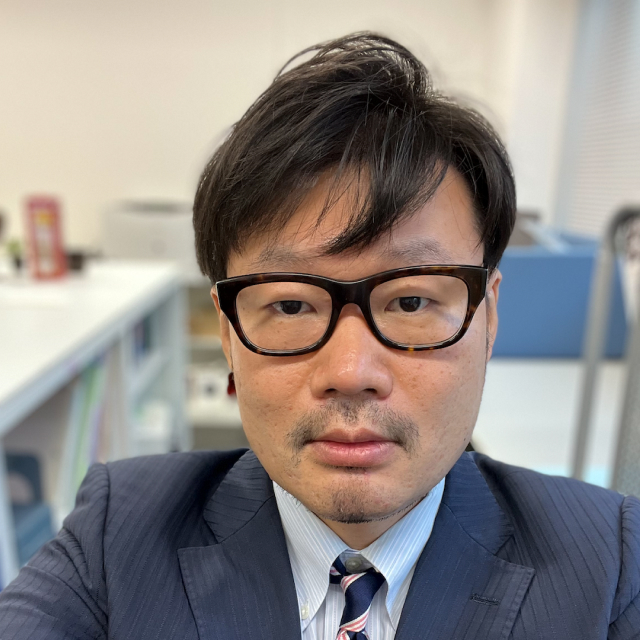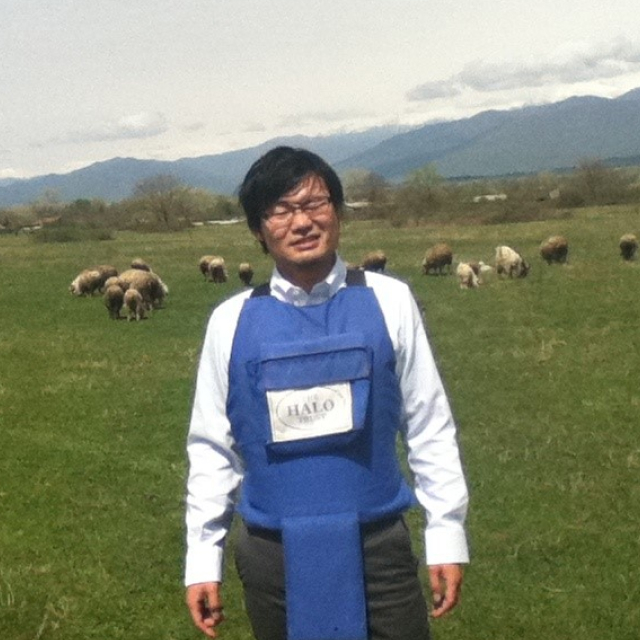Security and Human RightsResearch Collaborator
UCHIDA, Shu

Organization for Regional and Inter-regional Studies, Waseda University Associate Professor
Academic Achievement
- 内田州.2023.「ジョージア:NATO 加盟に係るジレンマ」, 広瀬佳一編『NATO (北大西洋条約機構)を知るための 71 章』. pp. 209-213. 明石書店.
- 内田州.2022.「文明の衝突を越えて‐EUの倫理的資本主義とパブリック・リーダーシップ」.『ワセダアジアレビュー:ポストコロナ禍と国際公共政策』.明石出版, pp.36-44.
- UCHIDA,Shu. 2019.“Georgia as a Case Study of EU Influence, and How Russia Accelerated EU-Russian relations.” Rick Fawn eds., Managing Security Threats along the EU’s Eastern Flanks. Palgrave Macmillan (Springer Nature), pp.131-151.
Field of specialisation
International Politics, Area Studies on the Former Soviet Space and EU
Kind of researcher I want to be
I have worked in conflict-affected countries such as Georgia and Sierra Leone as an attaché and a practitioner, precisely at the Political Section of the Embassy of Japan in Georgia, and the JICA Sierra Leone Field Office. Simultaneously, I have conducted research as an EU Marie Curie Fellow at the University of Coimbra in Portugal, and as a visiting fellow at the Davis Center at Harvard University in the United States. By bridging my practical experience in conflict-affected countries with research conducted in various nations, I aspire to become a researcher capable of crossing between theory and practice.
Introduction to your research theme
My research could be broadly divided into three pillars. Firstly, it is the sphere of peace and conflict studies. Currently, my main objective is to conduct research on Jus Post Bellum, focusing on how the international community’s moral responsibility entails involvement in the reconstruction of Ukraine when it welcomes the end of hostilities, or after a certain degree of conciliation of armed conflict. Additionally, consideration needs to be given not only to reconciliation between Ukraine and Russia, but also to reconciliation between the EU and Russia. Therefore, by using the keywords of the collective memory and identity of the former Soviet counties and the EU, universal values conducive to reconciliation between the EU and Russia will be sought.
The next pillar concerns forced migration studies. This involves not only working as a refugee examination counselor at the Immigration Services Agency, Ministry of Justice, but also demonstrating significant interest in refugee and internally displaced persons issues, such as attending lectures on forced migration at the Refugee Studies Centre at the University of Oxford in 2013. Examining how solving this issue contributes to reconciliation is crucial.
Lastly, the current research focuses on the QUAD framework comprising the United States, Japan, Australia, and India. The intention is to analyze this from the perspectives of both minilateralism and multilateralism. While my regional expertise lies in international politics in the former Soviet space, the aim is to conduct research not limited to specific regions, but to perceive the international community not as points but as surfaces, considering interregional relationships and the globe in a comprehensive manner, such as exploring the impact of Russia’s invasion of Ukraine on the Free and Open Indo-Pacific (FOIP).
Tentative title for your upcoming working paper
Jus post bellum over Ukraine: A key for reconciliation between EU and Russia
Research Image


